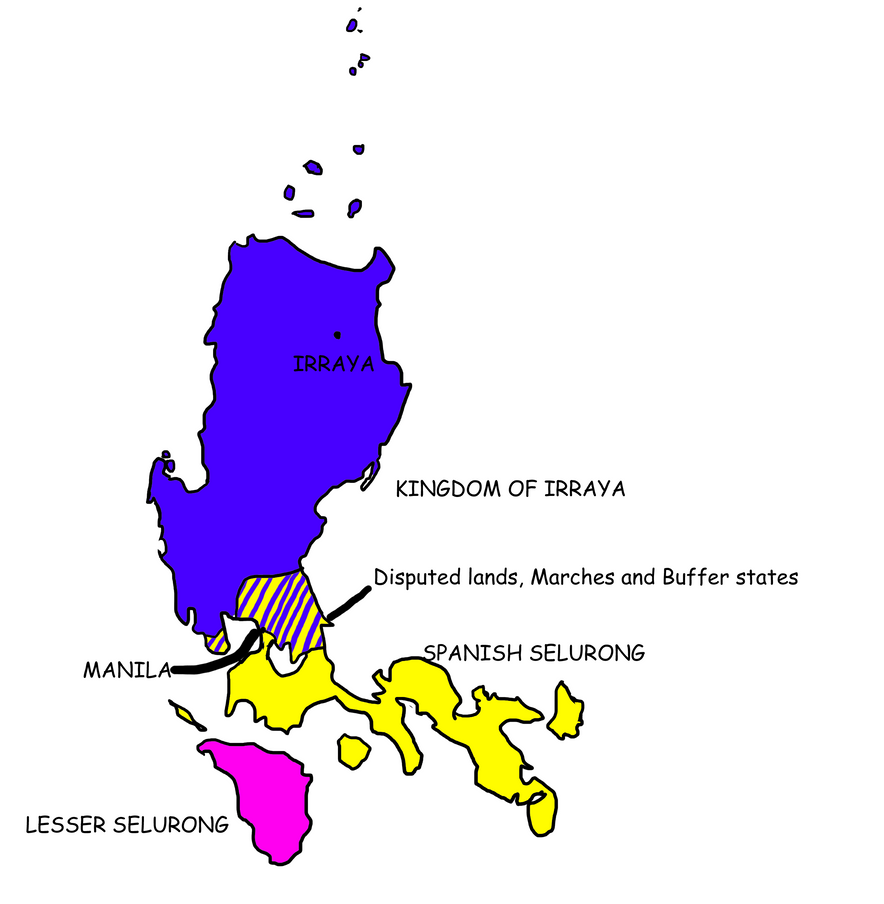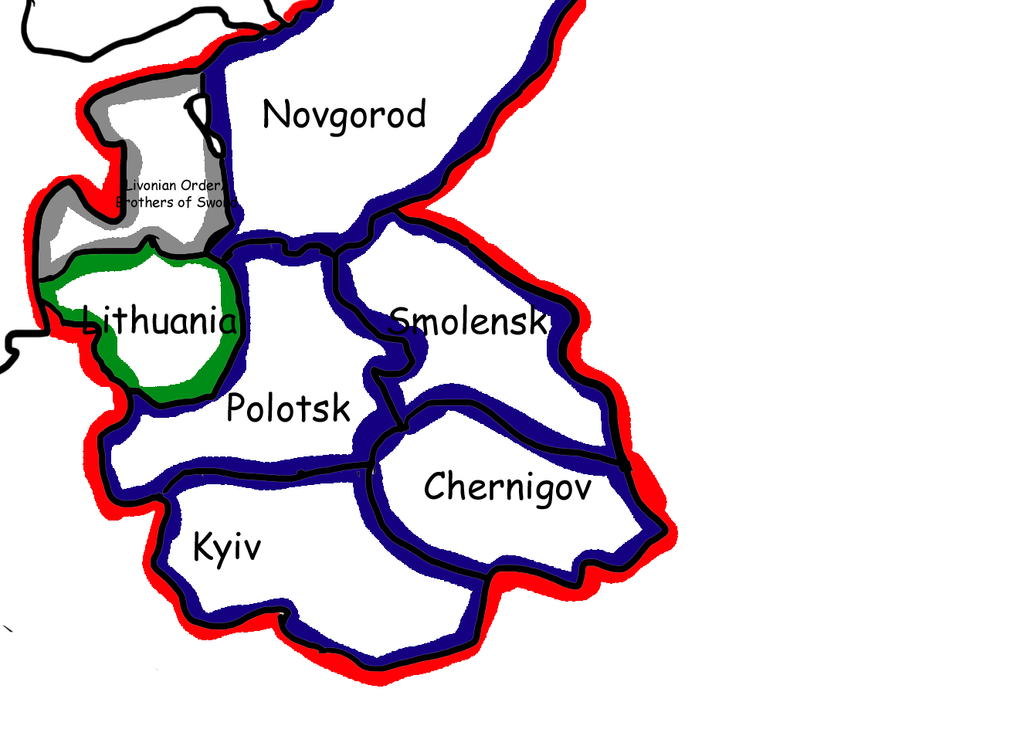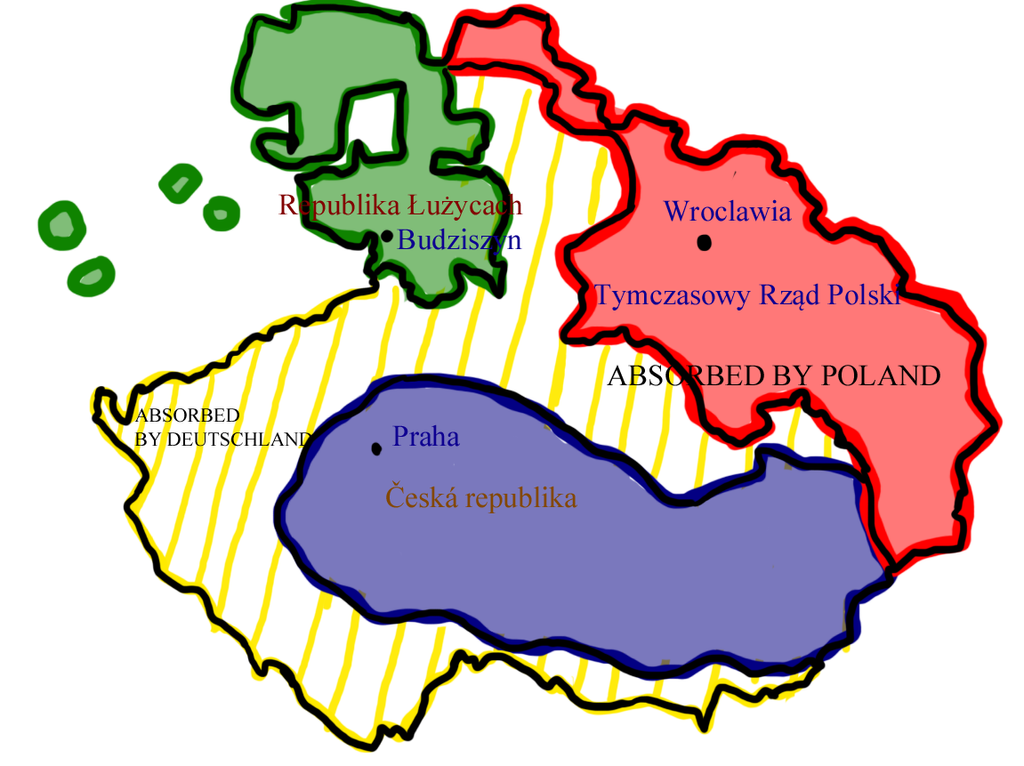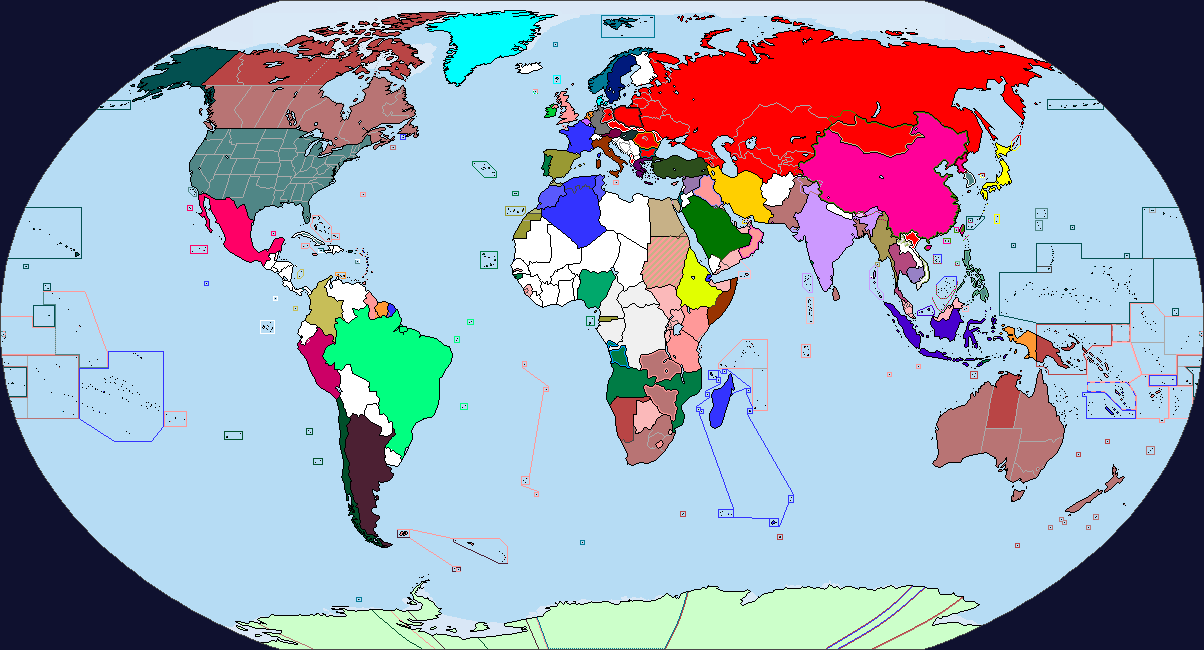I've been wondering why that part of Caucausus has been labeled Iberia.The union of the Greek and Roman empires was all but assured.
You are using an out of date browser. It may not display this or other websites correctly.
You should upgrade or use an alternative browser.
You should upgrade or use an alternative browser.
Map Thread X
- Thread starter metastasis_d
- Start date
- Status
- Not open for further replies.
Tsao
Banned
I've been wondering why that part of Caucausus has been labeled Iberia.
http://en.wikipedia.org/wiki/Caucasian_Iberia
It was called that IOTL.
There was also a region in the Caucasus called Albania.
Hapsburg
Banned
The place was called Iberia at the time, adjacent to Colchis. It, along with Colchis, formed the basis of the later Georgian state.I've been wondering why that part of Caucausus has been labeled Iberia.
Mathuen
Banned
Oh, oh my.
Well, looks like I just found my clone.
...
...
...
*faints*
seriously though HOLY MOTHER OF FUCK.
god is real, GOD IS REAL
HOLYAASDAAGBDNjjsvvvvvvvvvv
[lowtuff exe. has broken down. please rebbot]
Wow, really, wow. I'll explain my shock now...
A few days ago, prompted by the Mars FBWI I made, wanted to make a better Mars basemap. I then searched google images, found exactly the same map that you based yours off of and then reformatted in the same manner you did.
I literally finished it off a day or two ago. I only neglected from posting it out of laziness.
And then just as I go to the Map Thread to post it I see that someone somehow has had the exact same thought process as me.
I'm not joking, look at the map that I made.
Apart from the enlargement of that map, my keeping of the latitudes & longitudes and the edits I made to mine they are nigh identical bar the individual drawing styles on the coasts.
My jaw, it refuses to close.
EITHER OSHRON IS INSIDE MY MIND OR GOD IS AMONGST US.
Awesome, I was planning on enlarging the size of my map and then rounding it, but now I don't have to. I'm both happy and jealous.

In this scenario there are three factions in the Island of Luzon or Selurong, there is the Kingdom of Irraya that believes it is the successor of the Kingdom of Selurong, there is Lesser Selurong whose ruler is related to the Bolkiahs and parts of Luzon are parts of the Spanish colony named Filipinas
Last edited:

Lithuania without Krewo
Jogaila allies with Poland but does not marry any Polish monarch.
http://en.wikipedia.org/wiki/Caucasian_Iberia
It was called that IOTL.
There was also a region in the Caucasus called Albania.
Or like there's two Galicias!
Or like there's two Galicias!
And don't even get started on the Kazaks and Cossaks to the far north.
And don't even get started on the Kazaks and Cossaks to the far north.
Speaking of the Kazakhs, has anyone else confused the Khazars and Kazakhs like I have?
Speaking of the Kazakhs, has anyone else confused the Khazars and Kazakhs like I have?
No, but I once said Khazan was Kazakh and that McKinley was the only president assassinated in Africa because it was near Nigeria Falls.
MarshalBraginsky
Banned
What about the word confusion between Khazar and Hazara? Both terms mean a thousand in the Persian language.
No, but I once said Khazan was Kazakh and that McKinley was the only president assassinated in Africa because it was near Nigeria Falls.
It`s Kazan or Qazan, there isn`t an h.
It's an imperfect translation, so yes there can be an H. If you dig deeply enough in Victorian books and other pre-WW1 documents, you'll find lots of interesting alternative spellings of things. One which comes to mind is Byelorussia/Belarussia/Bylorussia/Belorussia/Bela-Rossiya and so on.It`s Kazan or Qazan, there isn`t an h.
As for getting the lot confused, not that I can remember. Cossacks and Kazakhs are both amazing cultures, and Khazars even more so, but I can easily see the differences. Now, what's confusing is the difference between Jalayirs and Jalayirids- is there even one? Also the different Mameluk/Mamluk/Mamaluck states and definitions all over the place...
It's really good. What's up in Macedonia? I still love your version of Africa...
Macedonia is independent, backed by Italy and Greece, however Italy want's to puppet the nation while Greece wants to annex it.
Looks really cool, and I like the color you used for commie France, which would probably be more socialist than communist anyways. Is Alaska independent or just autonomous, cause that doesn't look like the Russian color?
Autonomous for Alaska, though I am still not so sure about that.
And France is pretty Communist
I think I've put the finishing touches on the map for the short AH story that I'm writing.
--
The Setting:
After an Umayyad victory at the Battle of Toulouse, Aquitaine is solidly in Islamic hands. Even with southern France in the hands of the Caliphate it its unable to conquer the rest of France and is turned back after a defeat by Charles Martel at Tours. With South Western Europe secured Sicily falls sooner than OTL and the Caliphate begins to try and conquer the rest of the Italian peninsula in earnest. For decades Italy is a battlefield as Lombards, Franks, Rhomanians, and Arabs/Berbers battle over the peninsula. The Caliphate captures the city of Rome in 749, which sees the Pope flee to Revenna and then to Venic. In 750, riding the wave of support after conquering much of Italy the Caliph is able to suppress an insurrection by the Kaysanite Shia. Unfortunately the Caliphate is on shaky legs and massively extended when a revolt was launched in 755 by the Khurramites thus beginning the Persian reconquista, and the throwing out of the Islamic Arabs rulers from most of Iran. The Pāpakid Dynasty is founded by Pāpak Khorramdin, who would come to rule over Persia and officially promoted the Khurramites form of neo-Mazdakian Zoroastrianism. Papakid Persia would wage war against the crumbling Caliphate along with its allies Rhomania and the Khazar Khanate. Popular rebellion in Egypt would throw the Caliphate out of the region and was followed by a brief period of Egyptian independence before it was reconquered by Rhomania. The Pāpakid Empire reconquered most of Persia proper but did not conquer heavily Islamized Mesopotamia. The Umayyad Caliphate had since splintered with a second rebellion by the Kaysanites, led Abbasids, capturing Baghdad and proclaiming a new Caliphate. The Umayyad Caliphate would survive in Southern Europe and North Africa. The isolated Caliphates would develop a very unique attributes over the next quarter millennia. In Mesopotamia and Arabia Islam would develop a siege mentality and would become ever more radical in the pursuit of Jihad. Minor Arab states in Mesopotamia and Arabia pledge their loyalty to the Caliph in Baghdad, but the power of the Abbasid Caliph doesn't extend far beyond the Tigris and Euphrates. In the West the Umayyad Caliphate has adopted many European customs; there is no taboo on drinking, religious tolerance has become a necessity, art work depicting images of the prophet has lost its taboo, and the Umayyad Caliphs have come to see themselves not as conquers of southern Europe but as a new Islamic dynasty come to rule over a reconstituted Roman Empire. The Caliphs have even come to adopt the title Imperator. Just as in the Middle East, the direct rule of the Caliph has begun to wax and wane. Much of Northern Italy and Southern France is practically independent either as Christian tributaries of the Caliphate or Islamic Emirates that have pledged fealty to the Caliph. Islam outside of Arabia and South Western Europe and Northern Africa has become kind of a curiosity and has largely disappeared from Central Asia and India. Even in Arabia Islam has begun to slowly dissipate, with Oman officially adopting the same form of neo-Mazdakian Zoroastrianism practiced in Persia and the Axumite Empire having invaded the western coast of Arabia and threatening the Hedjaz

--
The Setting:
After an Umayyad victory at the Battle of Toulouse, Aquitaine is solidly in Islamic hands. Even with southern France in the hands of the Caliphate it its unable to conquer the rest of France and is turned back after a defeat by Charles Martel at Tours. With South Western Europe secured Sicily falls sooner than OTL and the Caliphate begins to try and conquer the rest of the Italian peninsula in earnest. For decades Italy is a battlefield as Lombards, Franks, Rhomanians, and Arabs/Berbers battle over the peninsula. The Caliphate captures the city of Rome in 749, which sees the Pope flee to Revenna and then to Venic. In 750, riding the wave of support after conquering much of Italy the Caliph is able to suppress an insurrection by the Kaysanite Shia. Unfortunately the Caliphate is on shaky legs and massively extended when a revolt was launched in 755 by the Khurramites thus beginning the Persian reconquista, and the throwing out of the Islamic Arabs rulers from most of Iran. The Pāpakid Dynasty is founded by Pāpak Khorramdin, who would come to rule over Persia and officially promoted the Khurramites form of neo-Mazdakian Zoroastrianism. Papakid Persia would wage war against the crumbling Caliphate along with its allies Rhomania and the Khazar Khanate. Popular rebellion in Egypt would throw the Caliphate out of the region and was followed by a brief period of Egyptian independence before it was reconquered by Rhomania. The Pāpakid Empire reconquered most of Persia proper but did not conquer heavily Islamized Mesopotamia. The Umayyad Caliphate had since splintered with a second rebellion by the Kaysanites, led Abbasids, capturing Baghdad and proclaiming a new Caliphate. The Umayyad Caliphate would survive in Southern Europe and North Africa. The isolated Caliphates would develop a very unique attributes over the next quarter millennia. In Mesopotamia and Arabia Islam would develop a siege mentality and would become ever more radical in the pursuit of Jihad. Minor Arab states in Mesopotamia and Arabia pledge their loyalty to the Caliph in Baghdad, but the power of the Abbasid Caliph doesn't extend far beyond the Tigris and Euphrates. In the West the Umayyad Caliphate has adopted many European customs; there is no taboo on drinking, religious tolerance has become a necessity, art work depicting images of the prophet has lost its taboo, and the Umayyad Caliphs have come to see themselves not as conquers of southern Europe but as a new Islamic dynasty come to rule over a reconstituted Roman Empire. The Caliphs have even come to adopt the title Imperator. Just as in the Middle East, the direct rule of the Caliph has begun to wax and wane. Much of Northern Italy and Southern France is practically independent either as Christian tributaries of the Caliphate or Islamic Emirates that have pledged fealty to the Caliph. Islam outside of Arabia and South Western Europe and Northern Africa has become kind of a curiosity and has largely disappeared from Central Asia and India. Even in Arabia Islam has begun to slowly dissipate, with Oman officially adopting the same form of neo-Mazdakian Zoroastrianism practiced in Persia and the Axumite Empire having invaded the western coast of Arabia and threatening the Hedjaz
Hapsburg
Banned
The Parthian Army marched into Greece and sacked numerous towns. While involved in a bloody guerilla war in the mountains, they manage to destroy the Temple of Zeus in Olympia in 96 CE. The Greek Home Army retreats out of Greece itself and rebase in Epirus, launching a war into Roman Illyria.
After that and the invasion of southern Italy, the Romans decided to send envoys to Parthia to form an alliance to destroy the Hellenic Empire. The Romans promised them control over all lands east of Syria when control was wrested from the Greeks. Meanwhile, the Parthians consolidated their control over Asia Minor, Mesopotamia, and initiated their conquest of Syria and Judea. The King of Judea offered alliance and all of his male adults as soldiers in the service of the Parthians; Judea was granted relative independence and greatly expanded territory in Arabia and Palestine. Syria, Babylonia, Armenia, and Cappodocia were created as puppet states, and Iberia changed its allegiance. The fortunes of the Hellenic Empire began to shift violently against them, despite their holdouts in Asia minor and Western Greece. Egypt and Africa remained safe.
In 100 CE, the Greek army in Italy marched near Rome. The Roman home legions, small in number and led by Titus himself, met them in the field of battle near Lake Nemi. With better knowledge of the lay of the land, and skillful tactical manoeuvring, the Romans defeated the Greek forces. However, Titus was slain at the shores of the lake while engaging in personal combat. His brother, Titus Flavius Domitianus, became elected Dictator. He received notice after a string of great victories in Illyria and Dacia.
Domitianus arrived in Rome for his triumphal entry, acclaimed as dictator. In a public speech, he spoke of himself as the incarnation of Jupiter, there to deliver the Roman people from the menace of Greek invasion, referred to his fallen brother as a sacrificed "Rex Sacrorum" for his death at Nemi, and inferred that his election as a fraternal inheritance that ought to be akin to the Roman kingship.
The speech received thunderous applause from the Roman people and assembled soldiers. The senators were not as enthusiastic. In the following months, Domitianus initiated a purge of his political enemies and ambivalents. The army strongly supported him, giving him a great base of support as he led troops in the East. His governors kept order in the provinces, and in Rome.
But, even after ten more years of war, nothing had progressed. The lines remained static, and the Parthians continued to pump men into a gruelling war of occupation. The Greeks were stalled in all fronts, hardly able to react as their vast empire had its lines of communications blocked. Governors became almost like petty kings in and of themselves, setting the stage for a political splintering. While the Emperors dawdled in luxury and decadence in Alexandria, safe from battle and carnage.

After that and the invasion of southern Italy, the Romans decided to send envoys to Parthia to form an alliance to destroy the Hellenic Empire. The Romans promised them control over all lands east of Syria when control was wrested from the Greeks. Meanwhile, the Parthians consolidated their control over Asia Minor, Mesopotamia, and initiated their conquest of Syria and Judea. The King of Judea offered alliance and all of his male adults as soldiers in the service of the Parthians; Judea was granted relative independence and greatly expanded territory in Arabia and Palestine. Syria, Babylonia, Armenia, and Cappodocia were created as puppet states, and Iberia changed its allegiance. The fortunes of the Hellenic Empire began to shift violently against them, despite their holdouts in Asia minor and Western Greece. Egypt and Africa remained safe.
In 100 CE, the Greek army in Italy marched near Rome. The Roman home legions, small in number and led by Titus himself, met them in the field of battle near Lake Nemi. With better knowledge of the lay of the land, and skillful tactical manoeuvring, the Romans defeated the Greek forces. However, Titus was slain at the shores of the lake while engaging in personal combat. His brother, Titus Flavius Domitianus, became elected Dictator. He received notice after a string of great victories in Illyria and Dacia.
Domitianus arrived in Rome for his triumphal entry, acclaimed as dictator. In a public speech, he spoke of himself as the incarnation of Jupiter, there to deliver the Roman people from the menace of Greek invasion, referred to his fallen brother as a sacrificed "Rex Sacrorum" for his death at Nemi, and inferred that his election as a fraternal inheritance that ought to be akin to the Roman kingship.
The speech received thunderous applause from the Roman people and assembled soldiers. The senators were not as enthusiastic. In the following months, Domitianus initiated a purge of his political enemies and ambivalents. The army strongly supported him, giving him a great base of support as he led troops in the East. His governors kept order in the provinces, and in Rome.
But, even after ten more years of war, nothing had progressed. The lines remained static, and the Parthians continued to pump men into a gruelling war of occupation. The Greeks were stalled in all fronts, hardly able to react as their vast empire had its lines of communications blocked. Governors became almost like petty kings in and of themselves, setting the stage for a political splintering. While the Emperors dawdled in luxury and decadence in Alexandria, safe from battle and carnage.
And the above in ucs:
Are you using a POD in 1955 or just using that basemap?
Anyway, I like alternate African borders. They can be challenging as getting that perfect combination of cultural, geographical, numerical, and purely random borders is tough in such a diverse region.
- Status
- Not open for further replies.
Share:


